This Is Why You May Not Be Able to Eat at Chick-fil-A Right Now
Several locations across the country are closing their doors to diners.
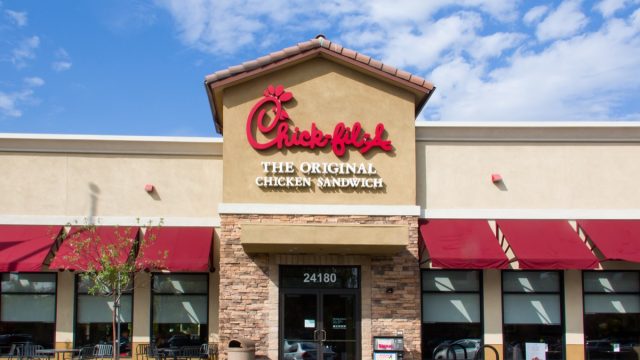
Over the last few months, when COVID cases were lower and vaccination rates were higher, many of us started to eat at our favorite restaurants for the first time in more than a year. But even though the trajectory of the pandemic has shifted, most dining rooms across the U.S. are still open now—however, there are a few exceptions, including some Chick-fil-As. Read on to find out why your local Chick-fil-A location may be turning away customers once again.
RELATED: Wendy's Is Permanently Getting Rid of This Menu Item.
Due to staffing shortages, several Chick-fil-A locations have closed their dining rooms.
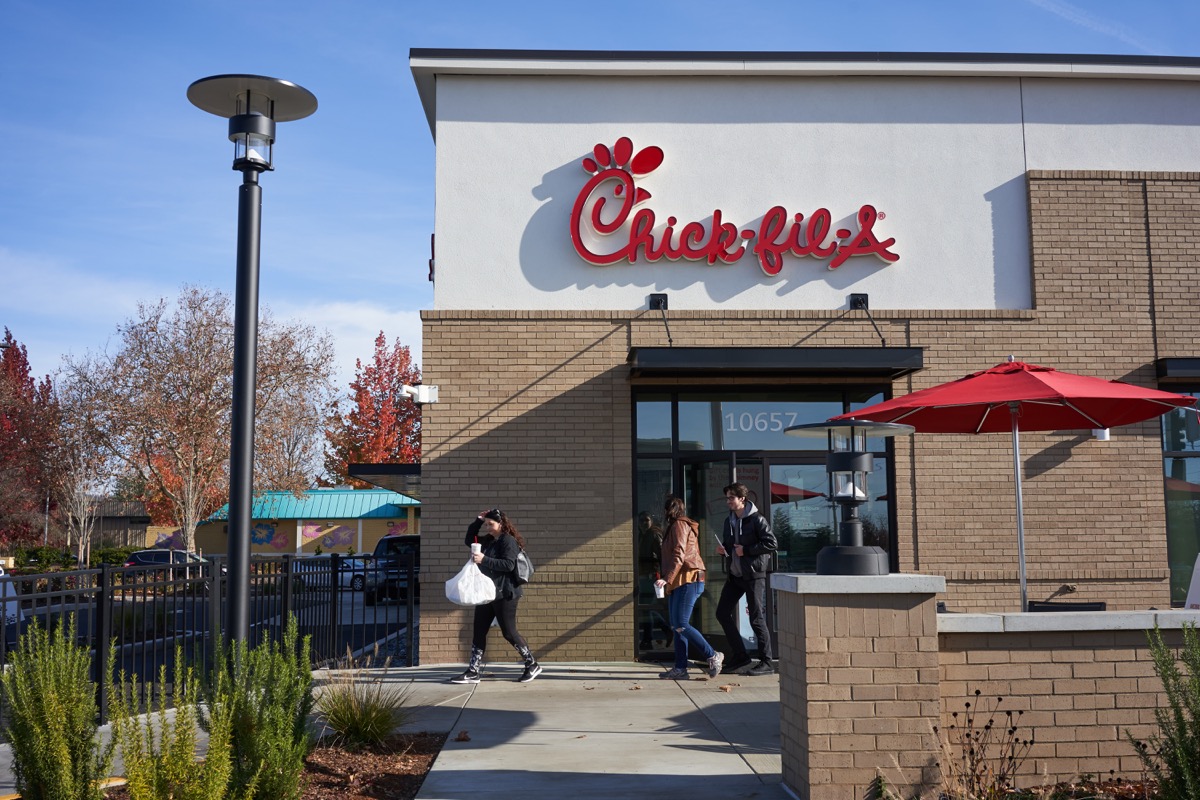
Some Chick-fil-A locations in southern states say they are having to close dining rooms because of a shortage of workers. Three Chick-fil-As in Alabama and one in Georgia are no longer allowing customers to dine indoors, according to CNN. "Due to lack of staff, we have resorted back to serving guests through our drive-thru only," one of the locations in Calera, Alabama, said in an Aug. 17 Facebook post.
Another location in McCalla, Alabama, said it's in "the midst of a staffing crisis," especially as it moves into its busiest time of the year, from September through December. "We are unable to schedule enough team members to provide the excellent service that our guests deserve," the McCalla team said. The other affected locations are in Madison, Alabama and Columbus, Georgia.
Some locations are no longer allowing customers to order curbside either.
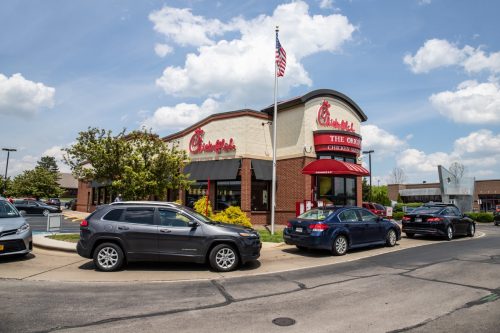
If you're looking to bypass the long drive-thru lines at some of these Chick-fil-A locations that've shut down their dining rooms, you may be disappointed. Normal Dull, the operator of the Madison Chick-fil-A, said his location is also turning off its mobile curbside ordering option, as well as its mobile carryout option.
"This was done to help reduce the stress on the team members we currently have but also to be able to still provide you with the Chick-fil-A experience you expect, just through a limited venue," Dull said on Facebook. "We have some of the best team members in the world. They work hard every day, but they are tired and overextended."
The Chick-fil-A in Calera has also stopped allowing customers to order curbside delivery and is limiting the amount of catering orders it will accept, according to a follow-up post from its operator, Brad Johnson.
RELATED: And for more food news, sign up for our daily newsletter.
At least one McDonald's location also recently closed its dining room for the same reason.
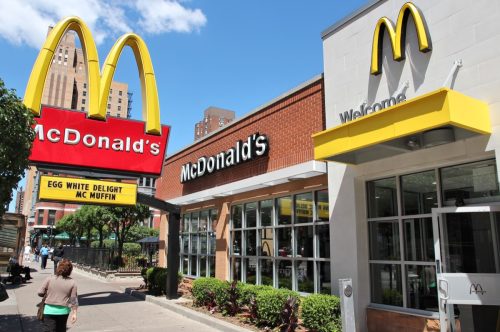
The staffing shortage is not just affecting Chick-fil-A locations, either. A McDonald's on the outskirts of Charlotte, North Carolina, said it also had to close its dining room because it does not have enough workers, Business Insider reported on Aug. 26.
The location on Pineville Matthews Road told the news outlet that it was still serving food through its drive-thru, as well as through delivery and collection services.
Fast food restaurants are experiencing high rates of employee turnover.
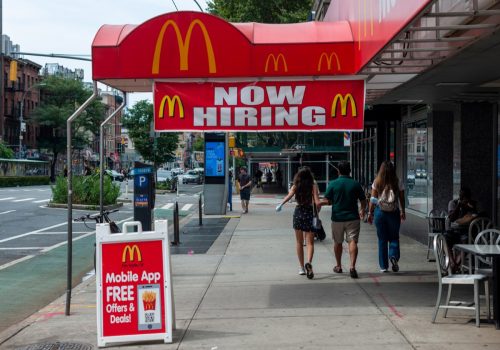
The entire restaurant industry is facing a labor shortage, but fast food spots like Chick-fil-A and McDonald's are bearing the brunt of it. According to an August study by data insights company Black Box Intelligence and job marketplace Snagajob, fast food restaurants are seeing employees leave at higher rates than ever before. The study says there are four driving factors contributing to the staffing shortage: inferior wages and benefits, limited childcare due to remote learning as a result of the pandemic, opportunities in other industries, and concerns about mental and physical health.
"Recently, restaurants have been hit with higher than usual turnover and this is a moment for restaurant owners and managers to take a look at how they do things and what their staff is up against," Black Box Intelligence and Sanagajob said in their study. "By creating a positive work environment and meeting workers' needs, restaurants can reduce turnover."
RELATED: If You Live in These States, Prepare for an Alcohol Shortage.





















